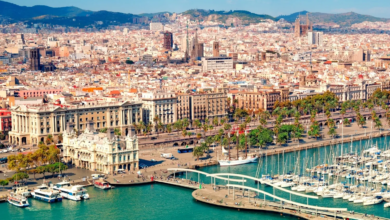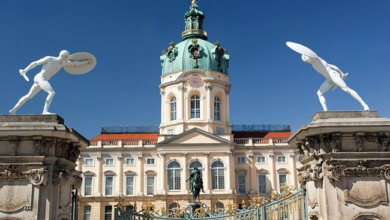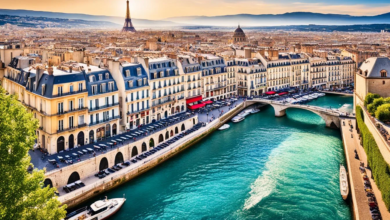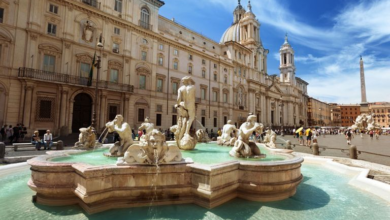Exploring Hungary: A Journey through Rich History, Musical Heritage, and Affordable Adventures
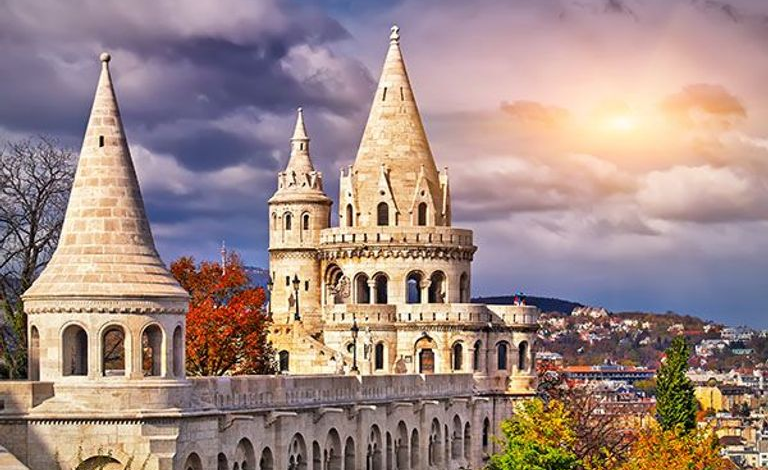
Introduction:
Hungary, a landlocked country in Central Europe, offers a tapestry of experiences for travelers. From its vibrant capital city Budapest to its charming towns and picturesque countryside, Hungary is a destination that seamlessly blends history, culture, and natural beauty. In this featured article, we will delve into the highlights of traveling in Hungary, with a particular focus on its renowned musical heritage, the role of conductors, and the availability of discount prices for budget-conscious travelers.
- Budapest: The Pearl of the Danube:
Begin your Hungarian adventure in Budapest, a city often referred to as the “Pearl of the Danube.” Explore the iconic Chain Bridge, visit the majestic Buda Castle, and relax in the soothing thermal baths that dot the city. Budapest offers a vibrant mix of history, stunning architecture, and a thriving culinary scene, making it a must-visit destination for any traveler. - Musical Heritage and the Role of Conductors:
Hungary has a rich musical heritage, boasting world-renowned composers and musicians. From Franz Liszt to Béla Bartók, Hungarian composers have left an indelible mark on classical music. The country is also famous for its talented conductors, who lead prestigious orchestras around the world. Immerse yourself in the magical world of Hungarian music by attending a performance at the Hungarian State Opera House or the Budapest Festival Orchestra, led by acclaimed conductors. - Discovering Historical Treasures:
Hungary is steeped in history, with a treasure trove of historical sites waiting to be explored. Visit the medieval castle town of Eger, known for its charming streets and the iconic Eger Castle. Explore the baroque beauty of Gödöllő Palace, a former royal residence. And don’t miss the captivating town of Szentendre, famous for its well-preserved architecture and thriving arts scene. - The Beauty of Lake Balaton:
Escape the bustling city and head to Lake Balaton, the largest freshwater lake in Central Europe. Enjoy the picturesque landscapes, relax on sandy beaches, and indulge in water sports activities. The lake region is also known for its vineyards, so be sure to sample some of the local wines while taking in the serene beauty of the area. - Cuisine and Culinary Delights:
Hungarian cuisine is a delightful blend of flavors, with dishes that reflect its Central European and Ottoman influences. Indulge in hearty classics like goulash, langos (fried dough), and chimney cake. Visit the Great Market Hall in Budapest to sample local produce, spices, and traditional Hungarian delicacies. Food lovers will find Hungary to be a gastronomic paradise. - Affordable Adventures and Discount Prices:
Hungary offers numerous opportunities for budget-conscious travelers. Many attractions, including museums, galleries, and historic sites, offer discounted prices for students, seniors, and families. Take advantage of the Budapest Card, which provides free public transportation and discounted entry to numerous attractions. Additionally, Hungary has a well-connected transportation network, making it easy to explore the country without breaking the bank.
Hungary offers a diverse range of experiences, blending historical, cultural, and natural attractions. Whether you’re interested in exploring bustling cities, relaxing in thermal baths, sampling delicious cuisine, or immersing yourself in traditional folklore, Hungary has something to captivate every traveler.

- Exploring Budapest’s Districts:
Budapest is divided into several distinct districts, each with its own character and attractions. In addition to the iconic landmarks in the city center, venture out to districts like the Jewish Quarter, known for its vibrant nightlife and historic synagogues; the bohemian District VII, filled with unique shops, street art, and trendy cafes; and the picturesque Castle District, home to Buda Castle, Matthias Church, and Fisherman’s Bastion, offering stunning views of the city. - Thermal Baths and Spas:
Hungary is famous for its thermal baths and spas, which are an integral part of the culture and provide a relaxing escape for locals and visitors alike. Budapest alone is home to numerous thermal baths, such as the Széchenyi Thermal Bath, Gellért Thermal Bath, and Rudas Thermal Bath. These baths offer a range of thermal pools, saunas, steam rooms, and various wellness treatments, allowing you to rejuvenate and unwind. - Festivals and Events:
Hungary hosts a vibrant calendar of festivals and events throughout the year. One of the most notable is the Sziget Festival, held in Budapest, which is one of Europe’s largest music and cultural festivals, featuring international artists across various genres. Other popular events include the Budapest Wine Festival, the Budapest Spring Festival, and the Hungarian Formula 1 Grand Prix at the Hungaroring circuit. - Rural Charms and Wine Regions:
Beyond the capital, Hungary’s countryside beckons with its scenic landscapes and charming towns. Explore the Danube Bend, a picturesque region where the Danube River winds through rolling hills and historic settlements. Visit the Tokaj region, renowned for its sweet wines and vineyards that have been recognized as a UNESCO World Heritage site. The Eger wine region is also worth a visit, known for its red and white wines, as well as the iconic Eger Castle. - Outdoor Activities:
Nature lovers and outdoor enthusiasts will find plenty to enjoy in Hungary. The country is home to several national parks, such as Hortobágy National Park, known for its vast grasslands and diverse bird species, and Bükk National Park, offering hiking trails through forests and karst landscapes. You can also go horseback riding in the Hungarian Puszta (Great Plain) or embark on a cycling adventure along the Danube Cycle Path. - Folklore and Traditions:
Hungarian folk culture is vibrant and deeply rooted in the country’s heritage. Experience traditional folk music, dance, and costumes at festivals and events. The village of Hollókő, a UNESCO World Heritage site, preserves the traditional architectural style of the Palóc people and provides a glimpse into rural Hungarian life. Explore open-air ethnographic museums, such as the Skanzen near Szentendre, to learn about traditional crafts, farming techniques, and cultural traditions.
Hungary’s rich history, architectural wonders, natural beauty, and cultural traditions offer a diverse range of experiences for travelers. Whether you’re interested in exploring urban gems, immersing yourself in nature, or discovering the country’s unique cultural heritage, Hungary is sure to captivate you with its charm and hospitality.

- Unique Architecture:
Hungary boasts a rich architectural heritage with a mix of styles influenced by various periods and cultures. In Budapest, admire the stunning Hungarian Parliament Building, a masterpiece of neo-Gothic architecture along the Danube River. Explore the Art Nouveau gems, including the Gresham Palace and the Museum of Applied Arts. The Matthias Church in the Castle District showcases a fusion of Gothic, Renaissance, and Baroque elements. And don’t miss the iconic Dohány Street Synagogue, the largest synagogue in Europe. - Cave Exploration:
Hungary is home to an extensive cave system waiting to be explored. The Aggtelek National Park, a UNESCO World Heritage site, features the Baradla-Domica Cave, which stretches over 25 kilometers. Embark on guided tours to witness the awe-inspiring stalactite formations and underground rivers. For those seeking a unique adventure, cave tours offer an unforgettable experience in the depths of Hungary’s natural wonders. - The Danube River:
The Danube River is a lifeline that flows through Hungary, offering picturesque landscapes and opportunities for river cruises. Take a leisurely boat ride along the Danube to enjoy panoramic views of Budapest’s iconic landmarks, including the Chain Bridge, the Buda Castle, and the Parliament Building. Alternatively, explore the scenic Danube Bend, where the river winds through charming towns, ancient fortresses, and lush hillsides. - Ecotourism and Wildlife:
Hungary is committed to preserving its natural environment and offers various ecotourism initiatives. Explore the Kiskunság National Park, a vast area of wetlands and grasslands that provide habitats for numerous bird species, including the iconic Hungarian grey cattle. Visit Lake Fertő, a UNESCO World Heritage site, known for its unique flora and fauna, including rare bird species. Engaging in eco-friendly activities, such as birdwatching and nature walks, allows visitors to appreciate Hungary’s biodiversity. - Christmas Markets:
If you happen to visit Hungary during the holiday season, be sure to immerse yourself in the festive atmosphere of its enchanting Christmas markets. Budapest’s Christmas Fair in Vörösmarty Square is a popular destination, offering a wide range of handmade crafts, local delicacies, and traditional Christmas decorations. Experience the magical ambiance, sip on mulled wine, and savor delicious chimney cake or roasted chestnuts as you browse through the stalls. - Accessibility and Public Transportation:
Hungary has a well-developed transportation system, making it easy to navigate and explore the country. Budapest has an efficient public transportation network, including metro lines, trams, buses, and suburban trains. The extensive rail network connects Budapest to various cities and towns across the country, allowing for convenient day trips and regional exploration. Additionally, Hungary’s highways provide efficient road connectivity for those preferring to rent a car and explore at their own pace.
Remember to check the latest travel information, including visa requirements and any travel advisories, before planning your trip to Hungary. With its diverse attractions, rich cultural heritage, and warm hospitality, Hungary offers an unforgettable travel experience for every kind of traveler.
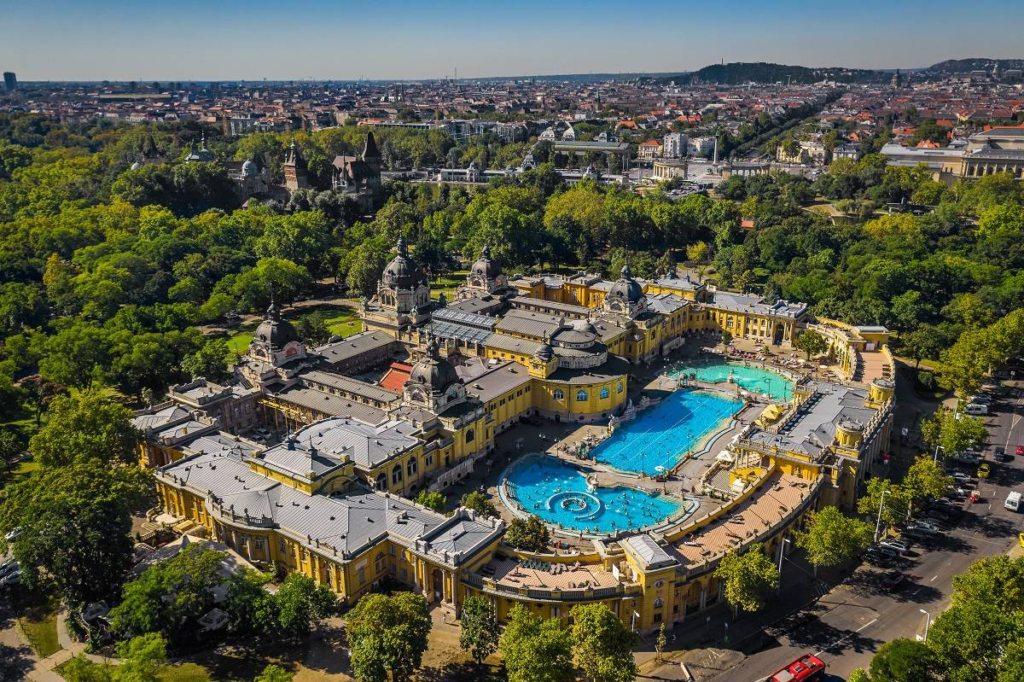
- UNESCO World Heritage Sites:
Hungary is home to several UNESCO World Heritage sites that showcase its cultural and natural significance. In addition to the previously mentioned sites, such as the Budapest panorama, Hollókő village, and the Aggtelek Karst, other notable sites include the early Christian necropolis in Pécs, the Caves of Aggtelek Karst and Slovak Karst (shared with Slovakia), and the Early Christian Heritage of the Pannonian Plain in the region of Pécs. - Wine Tourism:
Hungary has a long-standing tradition of winemaking, and wine enthusiasts will find plenty to explore. The country boasts several wine regions, each with its own unique varietals and winemaking techniques. Tokaj, renowned for its sweet dessert wines, is a must-visit for wine lovers. Other notable wine regions include Villány, Eger, Somló, and Balatonfüred-Csopak. Winery visits and tastings offer an opportunity to savor the flavors of Hungarian wines and learn about the local viticulture. - Sports and Recreation:
Hungary has a strong sporting culture, and sports enthusiasts can enjoy various activities. Football (soccer) is particularly popular, and attending a match at one of Budapest’s stadiums, such as Ferenc Puskás Stadium or Groupama Arena, can be an exciting experience. Water sports enthusiasts can take advantage of Hungary’s many lakes and rivers for activities like sailing, kayaking, and fishing. Hiking, cycling, and horseback riding trails are also available across the country. - Folk Festivals and Traditional Crafts:
Hungary celebrates its rich folk traditions through colorful festivals and events. Traditional music, dance, costumes, and crafts are showcased, providing a glimpse into the country’s cultural heritage. The Busójárás festival in Mohács, held before Lent, is one of the most famous, featuring masqueraded participants driving away winter. The Matyó Embroidery Festival in Mezőkövesd highlights the intricate folk embroidery specific to the Matyó region. Attending these festivals is an excellent way to experience Hungarian folklore firsthand. - Health Tourism:
Hungary is known for its well-developed medical infrastructure and quality healthcare services. Many travelers visit the country for medical treatments, including dental care, cosmetic surgery, and wellness retreats. Budapest, in particular, offers a range of medical spas and wellness centers, where visitors can indulge in therapeutic treatments, thermal baths, and relaxation therapies. Combining medical treatments with a vacation in Hungary allows for a unique and beneficial experience. - Hungarian Hospitality:
Hungarians are renowned for their warm hospitality and friendliness towards visitors. Locals are often eager to share their culture, traditions, and recommendations for exploring their country. Engaging in conversations with locals, trying the local cuisine, and immersing yourself in the daily life of Hungary can lead to memorable encounters and a deeper understanding of the country.
Hungary’s multifaceted attractions, from its lively music festivals and natural wonders to its architectural treasures and traditional celebrations, offer a rich tapestry of experiences for travelers. Whether you’re seeking cultural immersion, natural beauty, festive celebrations, or unique culinary delights, Hungary provides a wealth of opportunities to explore and enjoy.

From its thermal baths and natural landscapes to its cultural traditions and historical sites, Hungary offers a diverse range of experiences for travelers. Whether you’re seeking relaxation, adventure, cultural immersion, or culinary delights, Hungary’s charms are sure to captivate you.
- Music and Performing Arts:
Hungary has a strong musical tradition and is renowned for its contributions to classical music. Budapest is home to prestigious music institutions such as the Franz Liszt Academy of Music and the Hungarian State Opera House. Attending a classical music concert or opera performance in one of these iconic venues is a treat for music lovers. Additionally, Hungary hosts music festivals throughout the year, including the Budapest Spring Festival, the VeszprémFest, and the Miskolc Opera Festival. - Culinary Delights:
Hungarian cuisine is hearty, flavorful, and influenced by its Central European neighbors. Traditional dishes include goulash (a meat and vegetable stew), paprikás csirke (chicken paprikash), töltött káposzta (stuffed cabbage rolls), and lángos (a deep-fried dough topped with various toppings). Don’t miss trying Hungarian specialties like lángos, chimney cake (kürtőskalács), and pálinka (fruit brandy). Budapest is also known for its vibrant food scene, with a wide range of restaurants, street food vendors, and trendy cafes serving both traditional and modern cuisine. - Art and Museums:
Hungary has a rich artistic heritage, and art enthusiasts can explore its world-class museums and galleries. The Hungarian National Gallery in Budapest houses an extensive collection of Hungarian art, ranging from medieval to contemporary works. The Museum of Fine Arts showcases European art from ancient times to the present day. The Ludwig Museum focuses on contemporary art, while the Hungarian National Museum provides insights into the country’s history and culture. Art enthusiasts will find a wealth of artistic treasures to discover and appreciate. - Film Locations and Festivals:
Hungary has become a popular destination for filmmakers, with its picturesque landscapes and well-preserved historical sites. Budapest, in particular, has served as a backdrop for numerous international films, including “Blade Runner 2049,” “Red Sparrow,” and “Inferno.” Film buffs can even take guided tours to explore famous film locations in the city. Hungary also hosts several film festivals, such as the Budapest International Documentary Festival and the Budapest International Film Festival, offering opportunities to enjoy a diverse range of films from around the world. - Sustainable Tourism Initiatives:
Hungary is increasingly focusing on sustainable tourism practices. From eco-friendly accommodations to responsible tour operators, efforts are being made to minimize the environmental impact of tourism. Visitors can support these initiatives by choosing eco-conscious accommodations, using public transportation or cycling, participating in nature conservation activities, and respecting local customs and traditions. Engaging in sustainable tourism allows travelers to enjoy the beauty of Hungary while contributing to its preservation for future generations. - Language and Culture:
The Hungarian language, known as Magyar, is unique and distinct from most other European languages. While English is spoken and understood in many tourist areas, learning a few basic Hungarian phrases can enhance your travel experience and show appreciation for the local culture. Hungarians take pride in their cultural heritage, which includes folk traditions, literature, and art. Visiting museums, attending cultural events, and exploring traditional crafts and folklore provide insight into the country’s rich cultural tapestry.
Hungary’s diverse offerings, from its vibrant arts scene to its culinary delights, make it a captivating destination for travelers. Whether you’re interested in exploring historical landmarks, enjoying cultural festivals, indulging in delicious cuisine, or immersing yourself in the local way of life, Hungary has something for everyone to enjoy.
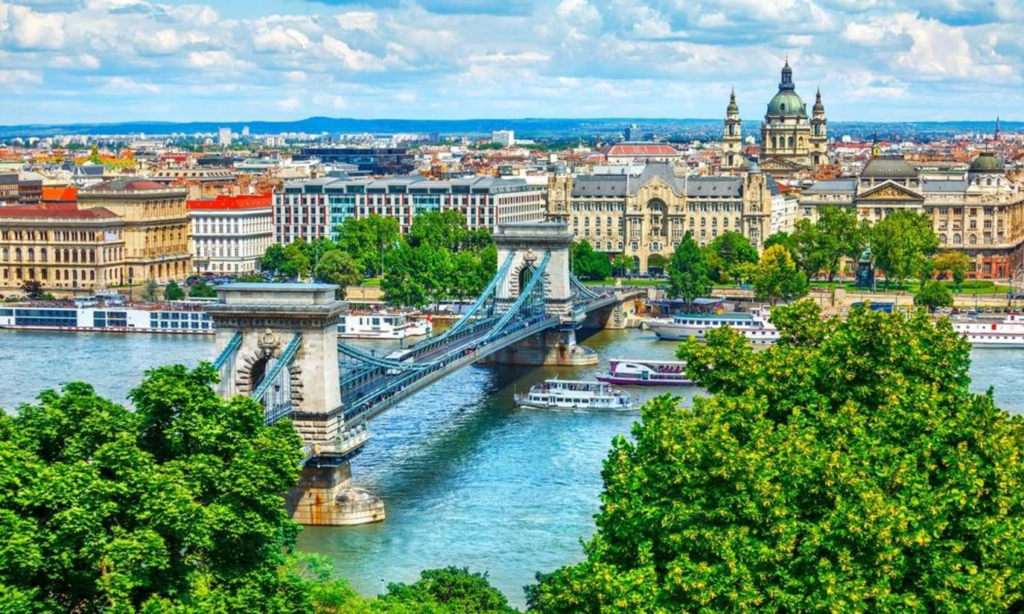
- Thermal Baths and Spas:
Hungary is famous for its thermal baths and spas, which have been enjoyed for centuries. Budapest, known as the “City of Spas,” is home to numerous thermal baths, including the Széchenyi Thermal Bath, Gellért Thermal Bath, and Rudas Thermal Bath. These baths offer a range of relaxing and therapeutic experiences, with hot thermal pools, saunas, steam rooms, and various wellness treatments. Soaking in the mineral-rich thermal waters is not only a rejuvenating experience but also a cherished part of Hungarian culture. - Lake Balaton:
Lake Balaton, often referred to as the “Hungarian Sea,” is the largest lake in Central Europe and a popular summer destination. The lake offers a wealth of recreational activities, including swimming, sunbathing, sailing, and fishing. The surrounding area is dotted with charming towns and vineyards, where visitors can sample local wines and indulge in traditional Hungarian cuisine. Lake Balaton provides a tranquil retreat and a picturesque backdrop for relaxation and outdoor adventures. - Easter Traditions:
Easter is a significant holiday in Hungary, and the country celebrates it with unique traditions. One of the most notable customs is the sprinkling of women with water on Easter Monday, known as “locsolás.” Men visit their female relatives and friends, recite a short poem, and playfully sprinkle them with water or perfume. It is a lighthearted and joyful tradition symbolizing fertility and good luck. The Easter period is also marked by various events, such as Easter fairs and processions, where visitors can witness traditional Hungarian Easter customs. - Jewish Heritage:
Hungary has a rich Jewish heritage, and visitors can explore Jewish history and culture through its synagogues, museums, and memorials. The Great Synagogue in Budapest, also known as the Dohány Street Synagogue, is a significant landmark and a testament to the country’s Jewish heritage. The Holocaust Memorial Center provides insights into the Holocaust and its impact on the Hungarian Jewish community. Other notable sites include the Kazinczy Street Synagogue in Budapest and the Jewish Quarter, known for its vibrant atmosphere and Jewish-themed establishments. - Adventure Tourism:
Hungary offers opportunities for adventure enthusiasts seeking adrenaline-pumping activities. The Bükk National Park and the Mátra Mountains are popular destinations for hiking and mountain biking, with scenic trails and breathtaking vistas. The Tisza River is ideal for kayaking and canoeing, allowing visitors to explore its tranquil waters and surrounding wetlands. Adrenaline junkies can also try their hand at caving, rock climbing, and paragliding in various locations across the country. - Folklore and Traditional Crafts:
Hungarian folklore and traditional crafts are deeply rooted in the country’s cultural heritage. Visitors can discover traditional crafts such as pottery, embroidery, wood carving, and lacework, often showcased in local markets and craft fairs. The Szentendre Open-Air Museum near Budapest offers a glimpse into rural Hungarian life and traditional craftsmanship. Immersing yourself in the rich folklore and crafts of Hungary provides a deeper understanding of its cultural traditions and artistic expressions.
From its thermal baths and natural landscapes to its cultural traditions and historical sites, Hungary offers a diverse range of experiences for travelers. Whether you’re seeking relaxation, adventure, cultural immersion, or culinary delights, Hungary’s charms are sure to captivate you.

- Music Festivals:
Hungary is renowned for its vibrant music festival scene, attracting both local and international artists and music enthusiasts. Some of the popular music festivals held in Hungary include Sziget Festival, which takes place in Budapest and is one of the largest music festivals in Europe. It features a diverse lineup of musical genres, including rock, pop, electronic, and world music. Other notable festivals include Balaton Sound, Volt Festival, and Bánkitó Festival, offering a mix of music, entertainment, and cultural experiences. - Ecotourism and Nature Reserves:
Hungary boasts several beautiful nature reserves and protected areas, making it a great destination for ecotourism. Hortobágy National Park, a UNESCO World Heritage site, is a vast area of wetlands and grasslands known for its unique wildlife and traditional Hungarian shepherding culture. The Danube-Drava National Park, located along the Danube and Drava rivers, offers diverse habitats and opportunities for birdwatching, hiking, and cycling. Kiskunság National Park, Bükk National Park, and Aggtelek National Park are also worth exploring for their natural beauty and biodiversity. - Christmas Markets:
During the festive season, Hungary’s cities come alive with enchanting Christmas markets. Budapest’s Christmas markets, such as the one in Vörösmarty Square and the Advent Market at St. Stephen’s Basilica, offer a magical atmosphere with beautifully decorated stalls selling handicrafts, gifts, and delicious seasonal treats. Visitors can enjoy mulled wine, chimney cake, roasted chestnuts, and traditional Hungarian dishes while browsing the festive offerings. Christmas markets are also held in other cities and towns across the country, providing a delightful experience for locals and tourists alike. - Rural Tourism:
Exploring Hungary’s countryside and rural areas offers a different perspective on the country’s charm. Rural tourism allows visitors to experience traditional village life, picturesque landscapes, and authentic local customs. Many rural areas offer guesthouses and farm stays, where visitors can engage in agricultural activities, interact with locals, and savor homemade Hungarian cuisine. The Tokaj wine region, the Puszta region, and the charming villages of Hollókő and Szentendre are popular destinations for rural tourism. - Architecture:
Hungary boasts a diverse architectural heritage, ranging from medieval castles to Art Nouveau masterpieces. Budapest, in particular, showcases architectural treasures like the Hungarian Parliament Building, Buda Castle, Fisherman’s Bastion, and the stunning Gellért Baths. The city’s architectural ensemble along the Danube River is a UNESCO World Heritage site. Other notable architectural gems can be found in cities like Pécs, Eger, Győr, and Debrecen, each with its own unique blend of architectural styles and historical significance. - Traditional Festivals:
Hungary celebrates a variety of traditional festivals throughout the year, each with its own unique customs and rituals. For example, Busójárás in Mohács is a winter carnival where locals dress in traditional masks and costumes to chase away winter. The Palóc Wedding Festival in Hollókő showcases a traditional Palóc wedding ceremony, complete with folk music, dances, and customs. These festivals provide an opportunity to witness age-old traditions, participate in local festivities, and gain a deeper understanding of Hungarian culture.
Conclusion:
Hungary, with its captivating history, vibrant musical heritage, and affordable adventures, is a destination that offers a wealth of experiences for travelers. From exploring the stunning architecture of Budapest to indulging in traditional Hungarian cuisine, there is something for everyone. Immerse yourself in the rich cultural tapestry of Hungary and create memories that will last a lifetime.
